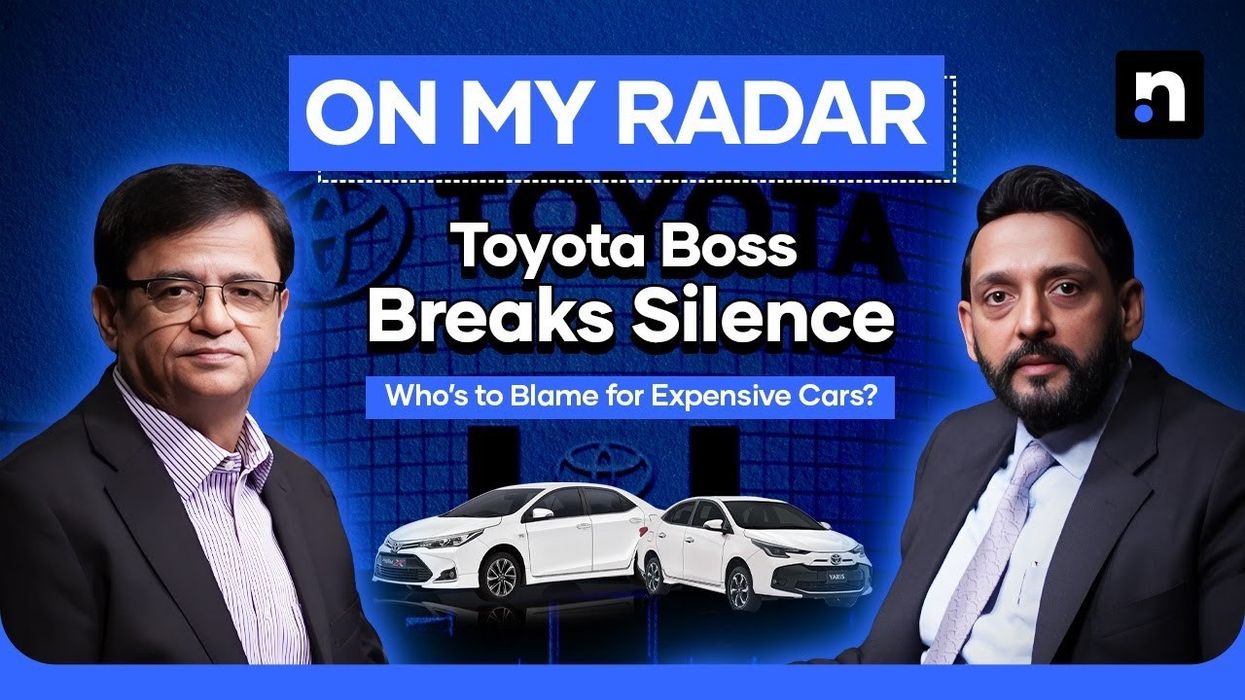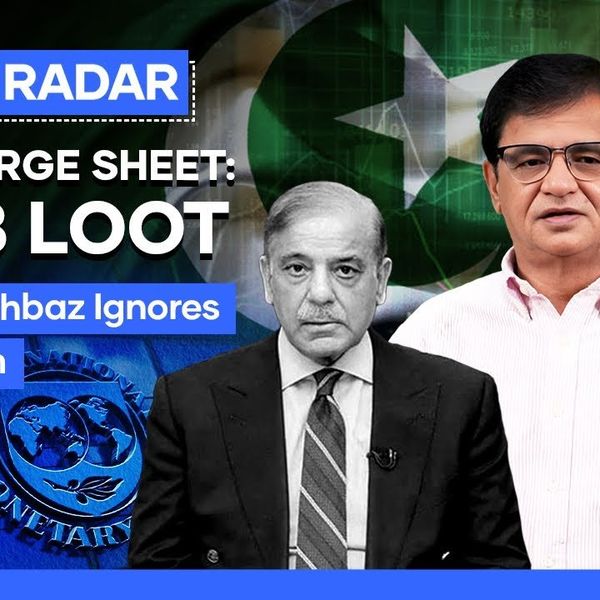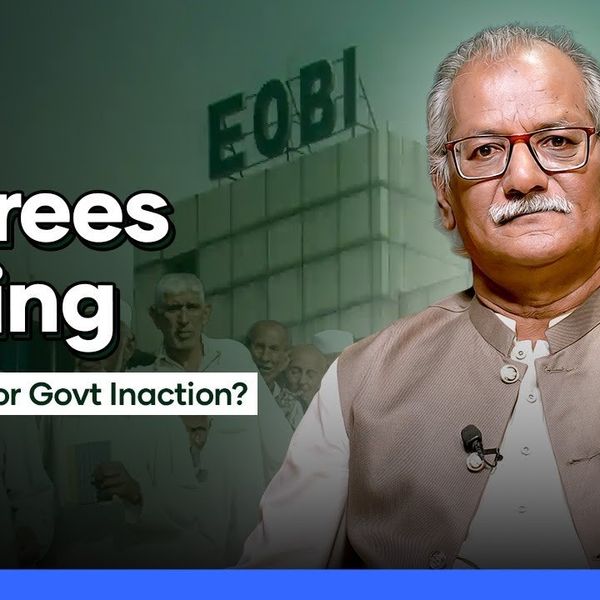Indus Motor CEO on Pakistan's auto growth, economic challenges, and EV future
In podcast with Kamran Khan, Ali Asghar Jamali emphasizes economic stability and calls for tax reforms to boost industry
News Desk
The News Desk provides timely and factual coverage of national and international events, with an emphasis on accuracy and clarity.
Only 11 of 1,000 Pakistanis own cars vs 28 in India, 650 in America
Government taxes account for 63% of Fortuner's PKR 22M price
EV policy praised as potential catalyst for industry turnaround
Indus Motor Company Chief Executive Ali Asghar Jamali highlighted Pakistan's automotive sector challenges, emphasizing that economic stability and per capita income are the primary drivers of market growth.
Jamali explained that despite Pakistan's population of 250 million, the auto market remains limited due to economic factors. "The automobile market depends entirely on the size of the economy," he said, noting that in 2021-22, the market peaked at 350,000 vehicles.
"We were dreaming that the market would reach 500,000 vehicles," Jamali remarked, comparing the situation to India, where even with 1.4 billion people, their auto market only reaches about 500,000 vehicles annually.
He cited per capita income as the critical factor: "The automobile market 'bursts' at a per capita income of $3,000; we are sitting at $1,700," adding that in Pakistan, only 11 out of every 1,000 people own cars, compared to 28 in India and 650 in America.
Material shortages hamper manufacturing
Despite localizing over 65% of parts for vehicles like the Corolla, Jamali pointed to significant challenges in sourcing materials. "Every day we buy local parts worth 280 to 300 million rupees, but locally manufactured parts still include imported components because we don't have steel, resin, copper, or aluminum."
This lack of raw materials creates a fundamental disadvantage for the industry, particularly for exports. "How can we compete when the country doesn't have raw materials?" he questioned.
Jamali also detailed the evolution of Pakistan's auto manufacturing policies, noting the shift from a Deletion Policy—which mandated progressive localization—to a tariff-based system in 2004 that now governs duties on both local and imported parts.
High taxes put pressure on prices
Taxation emerged as a central theme in Jamali's assessment of Pakistan's high vehicle prices. "The on-road price of a Fortuner is 22 million rupees, of which the government takes 14 million rupees in taxes," he revealed.
He compared prices with other markets: "In Thailand, a Yaris costs $19,474 including taxes, and $14,600 without taxes. In Pakistan, a Yaris costs $24,274 including taxes, and $14,300 without taxes—which is actually $300 cheaper than Thailand before taxes."
Large vehicles face taxes exceeding 60%, while smaller cars are subject to 43% taxation. "The biggest factor in automobile prices is government taxes," Jamali emphasized, noting that buyers face additional withholding taxes of 5-10% during registration.
Pakistan's EV push shows promise
On a more optimistic note, Jamali praised the government's electric vehicle policy. "EVs are definitely the future, for which the Government of Pakistan has announced the best policy," he said.
The policy dramatically reduces taxes on electric vehicles compared to internal combustion engines—from 25% sales tax to just 1% for EVs, with similar reductions in import duties on parts. "EVs have started coming to Pakistan, and we will soon see the industry turnaround," he predicted.
Making vehicles more affordable
Jamali outlined two paths to making vehicles more affordable: increasing per capita income and reducing taxes. "As soon as per capita income increases, you will see an explosion in the volume of car purchases," he said.
He advocated for moderate tax reductions: "If we are taking 50% tax today, let's take 30%. A Corolla worth 7.5 million rupees has a 45% tax; if we reduce the tax by 20%, the price drops by 1.5 million."
Looking ahead, Jamali stressed the need for economic stability. "An atmosphere of confidence has begun to be established; we now need stable growth," he concluded, expressing cautious optimism about the sector's recovery.











Comments
See what people are discussing